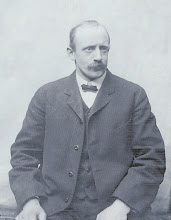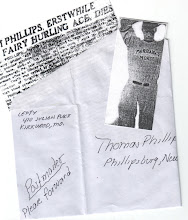
My son visited the Gettysburg battlefield in Pennsylvania recently and was surprised to see that signage there honoring Union Gen. Abner Doubleday specifically notes that Doubleday did NOT invent the game of baseball. It is pretty commonly accepted now that no one person invented the game. Here's what Wikipedia has to say about Gen. Doubleday:
"The myth that Abner Doubleday invented baseball in 1839 was once widely promoted and widely believed. There was and is no evidence for this claim, except for the testimony of one man decades after the fact, and there is more persuasive counter-evidence.
"Doubleday himself never made such a claim; he left many letters and papers, but they contain no description of baseball or even a suggestion that he considered himself a prominent person in the history of the game. His New York Times obituary makes no mention of baseball at all, nor does an encyclopedia article about Doubleday published in 1911.
"Contrary to popular belief, Doubleday was never inducted into the Baseball Hall of Fame, although a large oil portrait of him was on display at the Hall of Fame building for many years. The myth of Doubleday’s invention of baseball was itself baseball's invention, in the sense that Al Spalding, a former star pitcher, then club executive, who had become the leading American sporting goods entrepreneur and sports publisher, was largely responsible.
"Debate on baseball origins had raged for decades, heating up in the first years of the 20th Century. To end argument, speculation and innuendo, Spalding organized a panel in 1905. The panelists included his friend Abraham G. Mills, a former National League president.
"Its research methods were, at best, dubious. The Mills Commission concluded that baseball had been invented by Doubleday in Cooperstown, New York in 1839; that Doubleday had invented the word baseball, designed the diamond, indicated fielder positions, and had written down the rules and the field regulations. However, no written records from 1839 or the 1840s have ever been found to corroborate these claims; nor could Doubleday be interviewed (he had died in 1893).
"Further, Doubleday was not in Cooperstown in 1839 and may never have visited the town. He was enrolled at West Point and there is no record of any leave time. Mills, a lifelong friend of Doubleday, had never heard him mention baseball.
"The principal source for the story was one letter from elderly Abner Graves, who was a five-year-old resident of Cooperstown in 1839. But Graves never mentioned a diamond, positions or the writing of rules. Graves' reliability as a witness has also been questioned because he was later convicted of murdering his wife and spent his final days in an asylum for the criminally insane."
At Gettysburg, my son learned that Doubleday was a war hero. His command may have saved the Union Army in the early fighting, but he ended up being unfairly blamed because his outnumbered soldiers had to retreat.
Doubleday was an inventive man: later in his life he took out a patent on a cable car system, still employed in San Francisco.



